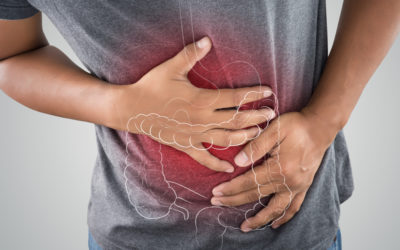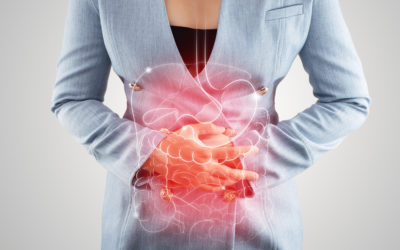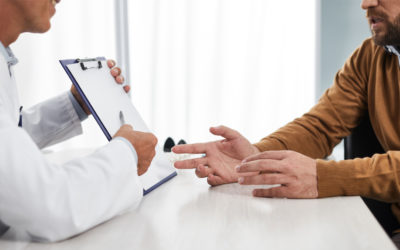Colonoscopy
Colorectal Cancer Screening and Colonoscopy Prep
Although colorectal cancer is one of the most common cancers in the United States, it often goes undetected, according to the American Cancer Society. Symptoms do not usually occur until the disease is advanced and 75% of people diagnosed with colorectal cancer don’t have a family history.
Colorectal cancer affects both men and women equally.Health experts recommend a colonoscopy screening adults starting at age 45*. Colorectal cancer is highly preventable with early detection and treatment, and a colonoscopy screening is one of the most powerful defenses to prevent colorectal cancer.
What is a Colorectal Cancer Screening?
A colonoscopy is a colorectal cancer screening that searches for potentially cancerous polyps (abnormal cell growths) on the inside lining of the colon or rectum. Catching these polyps can stop them from becoming cancer or detect cancer before it spreads.
Colonoscopy Prep – It’s Easier Than You Think
Despite what’s out there, colonoscopies aren’t nearly as difficult as myths suggest. Doctors and providers are committed to making your experience as stress-free and comfortable as possible.
- Easier prep: A colonoscopy prep diet usually includes drinking a large solution to clean your colon. This is why some avoid a colonoscopy. Physicians often prescribe a split dose, allowing patients to take half the night before, and the remainder the morning of the procedure.
- Simple: Using a thin, flexible scope with a small, high-definition camera, your surgeon can detect and remove polyps in a single procedure.
- Painless: Most patients experience minimal discomfort, and you’ll likely receive medicine to relax or sleep through it, so you don’t feel anything. You may have no memory of the experience at all.
The vast majority of patients with colorectal cancers did not have any pain or other symptoms. A colonoscopy may be the only way to catch cancer early and get you on the fast track to treatment.
Frequently asked questions:
Q: How long does a colonoscopy take?
A: Talk with your doctor’s office about the time you should allot to your colonoscopy screening. There will be check-in paperwork, screening prep time, the time for the colonoscopy, then recovery that all needs to be factored into the time it takes.
Q: How much does a colonoscopy cost?
A: Pricing may vary. Please discuss pricing with your insurance representative or with your doctor’s office directly.
Q: How to make colonoscopy prep easier?
A: There are tips on this page to help make your experience as stress-free and comfortable as possible.
Healthy Diet and Controllable Risk Modifications:
A healthy diet is best for good colon health. Some dietary modifications that may help prevent colon cancer include:
- Avoiding processed/cured meats
- Consuming colorful fruits and veggies
- Cutting out saturated fat
- Eating foods high in dietary fiber
- Getting enough omega-3 fatty acids
- Limiting your salt intake
- Reducing alcohol consumption
- Restricting the amount of red meat you eat
Controllable lifestyle risk modifications include:
- Exercising
- Maintaining a healthy body weight
- Stop smoking
- Limiting alcohol use (no more than one drink/day for women and two drinks/day for men)
Schedule your colonoscopy screening today. It’s the best thing you can do for you! To schedule a screening close to home call 618-282-7373.
*If you are 45-49, check with your insurance provider to be sure a screening colonoscopy is covered.
Schedule an Appointment
Call 618-282-7373
Related Services and Conditions
Gastroenterology
A healthy digestive system is essential for the body to function properly. When an illness or disease interrupts this, it can be painful, frustrating and even embarrassing. Fortunately, offers gastrointestinal (GI) services to help...
Capsule Endoscopy
When searching for a cause of bleeding from the small intestine or detecting polyps, Crohn’s disease, ulcers or tumors of the small intestine, your gastroenterologist may recommend a capsule endoscopy. This procedure will allow your gastroenterologist to look at the...
Fecal Matter Transplant for C Diff
Clostridium difficile or C. diff is a bacteria that causes recurring and severe diarrhea, nausea and fever. Those infected with C. diff have usually been taking antibiotics for other infections. While antibiotics help fight bad bacteria, they can also kill good...
GERD
Tired of that burning sensation in your chest — particularly at night? Could your painful swallowing, nausea, heartburn be caused by Gastroesophageal reflux disease (GERD)? If you experience a burning sensation in your chest, sometimes spreading to your throat, along...
Upper GI Endoscopy
If you’re suffering with symptoms or a condition affecting your digestive health, is here to help. Gastroenterologists specialize in upper GI endoscopy, a simple outpatient procedure to help diagnose and treat problems with the esophagus,...





